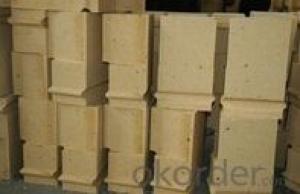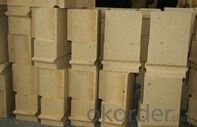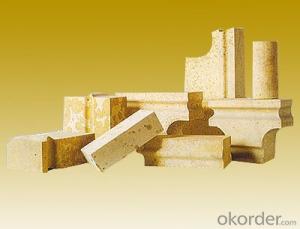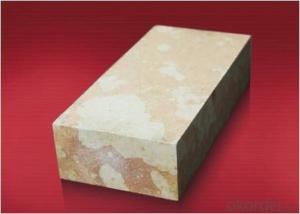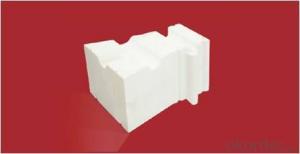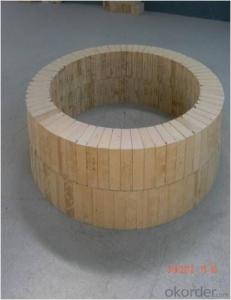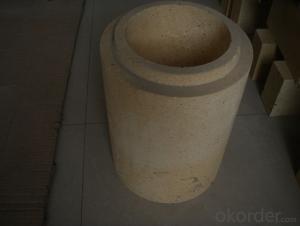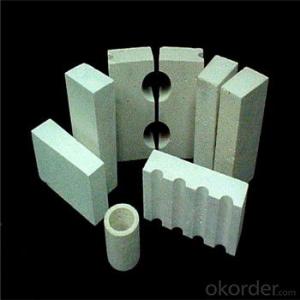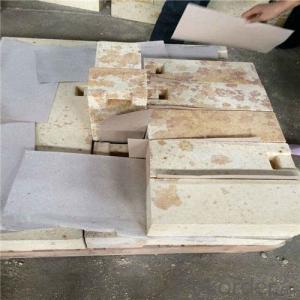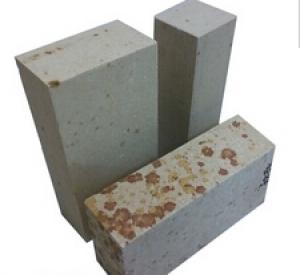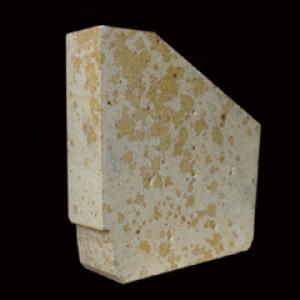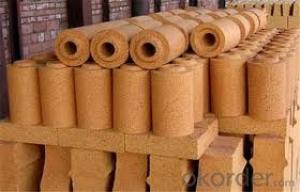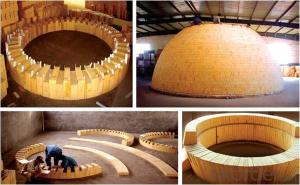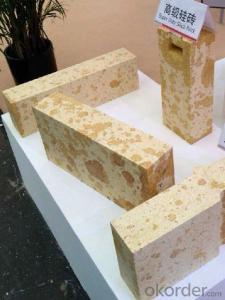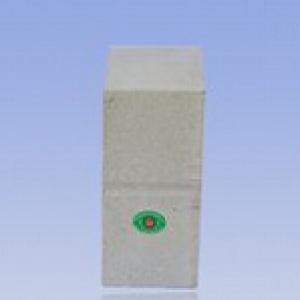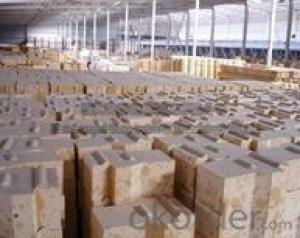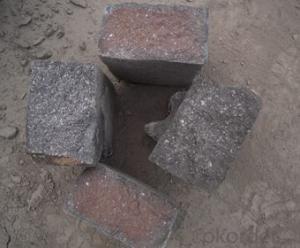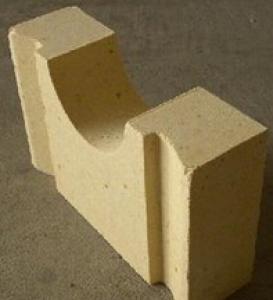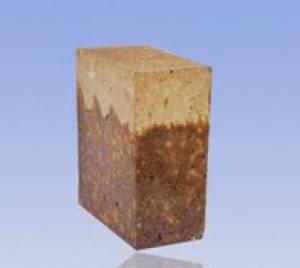Silica Brick for Coke Oven - Best Seller
- Loading Port:
- China Main Port
- Payment Terms:
- TT OR LC
- Min Order Qty:
- -
- Supply Capability:
- -
OKorder Service Pledge
OKorder Financial Service
You Might Also Like
Specifications
silica bricks for coke oven passed ISO certified
1.good resistance to acid slag and good heat conductivity
2.RUL 1620
best-selling silica bricks for coke oven passed ISO certified .it is made of quartz stone material,the content od Sio2 is above 93%,it has good resistance to acid glad and good heat conductivity,and the refractoriness is 1690-1710.C,RUL is beyond 1620.C
items | Furance bottom/ furancre wall | rests | allow deviation |
SiO2 % | ≥94.5 | - | |
Al2O3 % | ≤1.2 | - | |
Fe2O3 % | ≤1.2 | - | |
CaO % | ≤2.5 | - | |
0.2MPa RUL (°C) | 1650 | -10 | |
True density (g/cm3) | ≤2.33 | ≤2.34 | +0.01 |
Residual quarlz% | ≤1.0 | - | |
AP% | ≤22 | ≤24 | +1 |
CCS(MPa) | ≥40 | ≥35 | 10% |
PLC(1450°C *2h) % | 0~0.2 | - | |
Thermal expansion(1000°C) % | ≤1.28 | ≤1.30 | +0.03 |
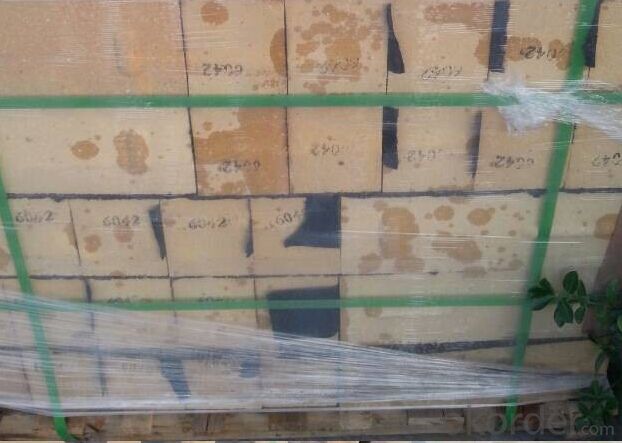
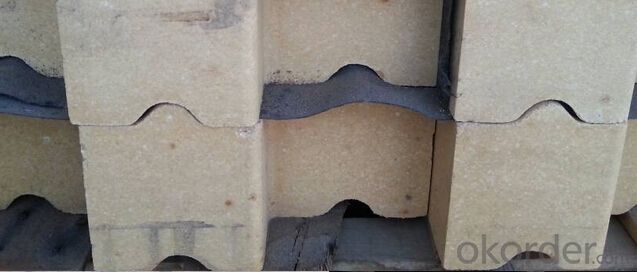
- Q: Because of the recent relates to this industry, by way of learning to name for all raw materials, I hope knowledgeable friends exhibitions, thank you.
- Classification of chemical components of refractory materialsAccording to the chemical characteristics of refractory raw materials can be divided into acidic refractory materials, such as silica, zircon etc.; neutral refractory raw material, such as corundum, bauxite, mullite (acidic) (acidic), Ge (alkaline) iron and graphite; alkaline refractory materials, such as magnesite, dolomite, magnesium sand calcium sand.
- Q: Such purpose and scope please give me detailed points thank you because I am learning stage
- Acidic silica brick refractory material, has good acid resistance and slag erosion, softening temperature is as high as 1640 to 1670 DEG C, in the long-term use volume is relatively stable under high temperature. The silica mineral phase is mainly composed of tridymite and cristobalite, there is a small amount of quartz and glass. Tridymite and cristobalite and quartz remaining at low temperature due to phase change, volume changes greatly, so the brick thermal stability at low temperature is very poor. In use, under 800 degrees Celsius, slowly heating and cooling, so as not to produce cracks. The use of temperature in blast furnace so should not be below 800 DEG on. The properties and process of silica crystal with SiO2 transformation is closely related, therefore, the proportion of it is one of the important quality indexes of silica brick. General requirements below 2.38, high quality silica brick should be less than 2.35. The true density is small, reflecting a large number of scale quartz and square quartz in the brick, the residual quartz is small, so the residual line expansion is small, and the strength is decreased in useThe raw materials for the manufacture of silica brick. The higher the SiO2 content of silica raw material, the higher the refractoriness. The most harmful impurities are Al2O3, K2O, Na2O and so on. They seriously reduce the refractoriness of refractory products. Brick with SiO2 content of not less than 96% of silica as raw materials, adding mineralizer (e.g. millscale, lime) and binder (such as molasses, sulfite pulp waste liquid), after mixing, molding, drying, sintering and other processes in the system.
- Q: The brick is mainly used in the place?
- Also used for high temperature bearing part of hot blast stove and acid open hearth furnace.
- Q: The United States of our brick anti-dumping duties?
- At present of our brick anti-dumping rate is 73.10%
- Q: Why is the three oxidation of two silicon is very harmful impurities in silica brick
- Heating calcination is the best way to extend this sort of impurity removal. Remove impurities
- Q: Common bond brick?
- Manufacturing for silica brick binder hi-li sulfate pulp waste liquid and lime milk. When lime milk is used as a bond, it acts as a plasticizer. To increase the strength of lime brick in the drying process, as mineralizer in the firing, promote the transformation of quartz.
- Q: Why is the highest brick coke oven temperature measuring point temperature not exceeding 1450
- Brick belongs to refractory materials, with strong resistance to acid slag or acid solution erosion ability, high load softening temperature are excellent properties of silica brick, usually 1640-1680 C.
- Q: The difference between clay refractory bricks and refractory brick in the application.
- Clay brick features good thermal shock resistance and low price, but high temperature performance is not well integrated, and the long-term use temperature is not higher than 1300 degrees. It is widely used in low temperature parts of various kilns.
- Q: Physical solid waste disposal
- The amount of addition is related to the shape and weight of the brick. The bricks can be added to 20% weight less than 25kg; bricks above 25kg can be added to 30%; for the specific type of brick can be added 30%. into waste silica brick should pay attention to this problem
- Q: Such purpose and scope please give me detailed points thank you
- Acid refractory brick is mainly composed of tridymite and cristobalite and quartz and a small amount of residual glass phase.
Send your message to us
Silica Brick for Coke Oven - Best Seller
- Loading Port:
- China Main Port
- Payment Terms:
- TT OR LC
- Min Order Qty:
- -
- Supply Capability:
- -
OKorder Service Pledge
OKorder Financial Service
Similar products
Hot products
Hot Searches
Related keywords
